
Perspective is an amazing thing.
It is, simply put, the story we tell ourselves. It all begins with a thought. Once we have a thought, if we hold it in our minds, it becomes a story because our brain does its job and goes to the files and finds evidence that our thought is correct. This process takes fractions of seconds.
Once we have our story, feelings are generated. These feelings move us to an action or response. Our response produces a result, either good or bad. This little scenario repeats itself hundreds of times each day.
You’ve all heard this old saying or something like it, “What you say is what you get.” It’s true. If you say, “My kids are driving me nuts,” they’ll drive you nuts. If you say, “I can’t stand my kids today,” or “My kids are so sloppy, messy, noisy, naughty, and so on,” that’s what you’ll get. It’s what you perceive is happening, regardless of what’s actually going on. This will influence your response and your ability to be Present.
Think of all the phrases we say and hear over and over again about kids:
• You’re driving me crazy.
• You’re so messy.
• You’re so noisy.
• I can’t get a minute’s peace.
• Why can’t you listen to me? You never listen!
• You’re so irresponsible.
• I don’t know what I’m going to do with you!
• You make me so mad.
• You’re so sloppy, disobedient, messy, argumentative, quarrelsome, and so on.
• You’re wearing me out.
• I can’t listen one more minute.
If we want better outcomes, we need to watch our words. Say what you want, not what you don’t want. Words are your thoughts/stories put into concrete form. Words generate emotions. You’ll feel the way you speak. How you feel moves you to an action that gives you a result, either good or bad. Your words move you closer to or away from the ability to be Present.
Let me give you an example.
I worked with a self-employed mother who was telling herself a negative story about her son’s actions. When she needed to work, he would come into the office and ask her a ton of questions about what she was doing, how things worked, etc. It was very disruptive.
She felt he was whiney and needy. He was a bother when she was trying to work. Her responses to her son were causing a strained relationship between them. She was having difficulty figuring out how to fix the situation.
Here’s what happened when she began telling herself a more positive story. When I asked her to tell me more about her son, she replied that he was bright, loving, and responsible. So, she decided to remind herself of these qualities each time she began to experience annoyance or frustration.
When I talked with her next, I asked her how it was going. She replied she and her son were no longer at odds. She enjoyed his company. She could see that he was just interested in what she was doing, and they had had opportunities to connect on and off during the day. She was able to respond positively to him more often. She was able to be Present more frequently.
Taking control of our stories, responses and hence our results take work and practice.
Here a few simple steps to get you going.
TIP 1—Take responsibility and stop blaming
Blame is always an indicator there’s a problem with our way of being or how we perceive what’s happening, or in other words, the story we’re telling ourselves.
TIP 2—Decide to think the best of others, even your kids.
When we decide to think the best of others, we can manage our thoughts and the resulting stories more effectively.
TIP 3—Choose words wisely. Watch the words you use when thinking or speaking:
• Childlike vs. naughty
• Young vs. clumsy
• Needs more direction vs. oppositional
• Tired vs. grumpy
• Preoccupied vs. lazy
• Angry vs. rebellious
• Being a kid vs. messy
• Wants my presence vs. needy
• Has a need vs. pushing my buttons
TIP 4—Keep practicing
Keep working at controlling your thoughts. This is something you need to do daily. There isn’t a point when you’re so good at it that you can stop working on it. Negative thoughts will come, and they’ll need to be managed. No matter what’s troubling you, change is possible, and taking control of your thoughts/stories is a great place to start.
Take responsibility. You’re in control of the stories you tell. Knowing this gives you all the power.




 Dad: I’m reading a book Called Lord of the Flies. I don’t like the story very much. It’s sad.
Dad: I’m reading a book Called Lord of the Flies. I don’t like the story very much. It’s sad.


 tape a piece of gum. On a birthday I may add a couple of dollars. That’s all. Years ago, as a family, we determined that we would not spend lots of money on gifts for either birthdays or holidays. We have all stuck with that intention. However, my grandchildren have other grandparents who send cool gifts in the mail. I worried about that. But I didn’t need to.
tape a piece of gum. On a birthday I may add a couple of dollars. That’s all. Years ago, as a family, we determined that we would not spend lots of money on gifts for either birthdays or holidays. We have all stuck with that intention. However, my grandchildren have other grandparents who send cool gifts in the mail. I worried about that. But I didn’t need to.
 In honor of the Great American Pie Month, I want to share a story that illustrates the difference between kids and adults. Understanding this can make all the difference in how much you enjoy being and working with them and it can also impact your enjoyment whenever you learn something new.
In honor of the Great American Pie Month, I want to share a story that illustrates the difference between kids and adults. Understanding this can make all the difference in how much you enjoy being and working with them and it can also impact your enjoyment whenever you learn something new.

 We’re all looking for simple ways to connect with our families despite how busy life has gotten. One technique I really enjoy is that of mini-conversations. Conversing with children and teens can be fun, relaxing, and energizing, and sometimes we learn something new.
We’re all looking for simple ways to connect with our families despite how busy life has gotten. One technique I really enjoy is that of mini-conversations. Conversing with children and teens can be fun, relaxing, and energizing, and sometimes we learn something new. Let me give you an example. When my youngest daughter was twenty, she was reading Incidents in the Life of a Slave Girl by Harriet A. Jacobs. She asked me to read the book because she wanted to talk about it. Over the few weeks that it took her to read the book we had conversations about the character of different people in the book, why people act the way they do and believe the things they do, and how to be better people ourselves.
Let me give you an example. When my youngest daughter was twenty, she was reading Incidents in the Life of a Slave Girl by Harriet A. Jacobs. She asked me to read the book because she wanted to talk about it. Over the few weeks that it took her to read the book we had conversations about the character of different people in the book, why people act the way they do and believe the things they do, and how to be better people ourselves. letter. She wrote back commenting about freedom and the fact that I had recently attended a caucus. We had a mini-conversation via mail about what a caucus is and who can go and why they would go. That led to a conversation back and forth about Fredrick Douglas, who he was, and how he worked for freedom for slaves, women, and other minority groups. With the advent of technology, we can have these types of mini-conversations face to face no matter what distance we must traverse.
letter. She wrote back commenting about freedom and the fact that I had recently attended a caucus. We had a mini-conversation via mail about what a caucus is and who can go and why they would go. That led to a conversation back and forth about Fredrick Douglas, who he was, and how he worked for freedom for slaves, women, and other minority groups. With the advent of technology, we can have these types of mini-conversations face to face no matter what distance we must traverse. Jack, my grandson, who was two at the time, had a dear friend who turned 90. He gave Jack a bunch of helium-filled balloons from his party. Jack and I took one balloon to the front yard and let it go. As it floated upward, we had a mini-conversation. It went like this:
Jack, my grandson, who was two at the time, had a dear friend who turned 90. He gave Jack a bunch of helium-filled balloons from his party. Jack and I took one balloon to the front yard and let it go. As it floated upward, we had a mini-conversation. It went like this: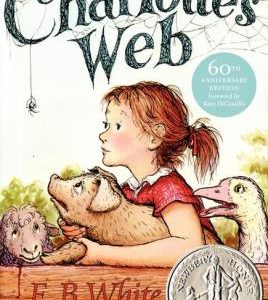
 Jodie was reading the book Charlott’s Web to her children. Frequently she would stop and ask a question. “What does manure mean?” “What does loft mean?” What does slop mean”? “What is a manure pile?” When the term manure pile came up again, later in the story, Jodie emphasized the term as she read. Then she asked, “Do you remember what manure pile means?” I heard, “Eweee, a pile of poop.” Then laughter.
Jodie was reading the book Charlott’s Web to her children. Frequently she would stop and ask a question. “What does manure mean?” “What does loft mean?” What does slop mean”? “What is a manure pile?” When the term manure pile came up again, later in the story, Jodie emphasized the term as she read. Then she asked, “Do you remember what manure pile means?” I heard, “Eweee, a pile of poop.” Then laughter.
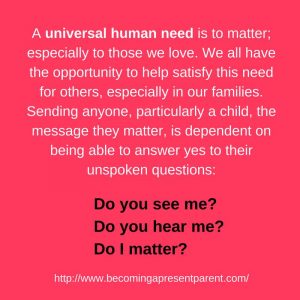 The idea that we should be careful to keep our priorities right in terms of not letting lesser concerns get in the way of greater ones so that we find ourselves “in the thick of thin things,” is good advice.
The idea that we should be careful to keep our priorities right in terms of not letting lesser concerns get in the way of greater ones so that we find ourselves “in the thick of thin things,” is good advice.
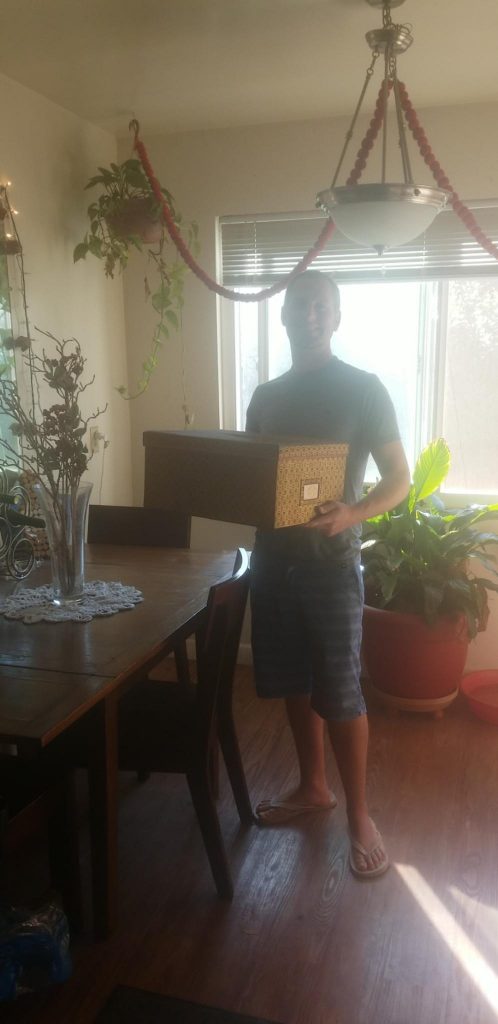


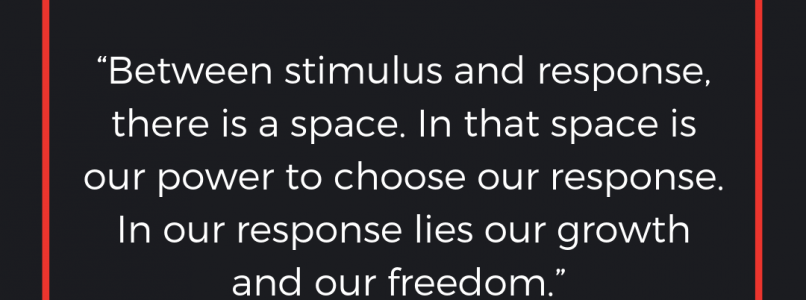
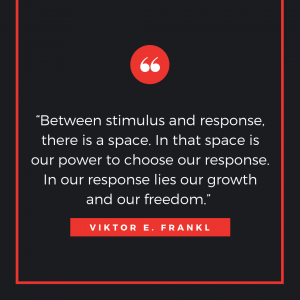 I bet you clicked this email because the subject line ticked you off! Twenty years ago, it would have ticked me off too. However, I hope to move you in the direction of accepting this as true because it has great bearing on what
I bet you clicked this email because the subject line ticked you off! Twenty years ago, it would have ticked me off too. However, I hope to move you in the direction of accepting this as true because it has great bearing on what

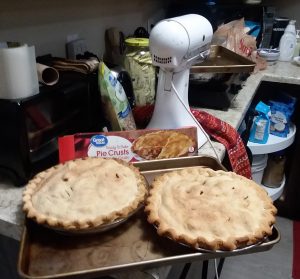 her she said that she was having tons of visits and treats but that her family could use some nurturing. Hence one apple pie.
her she said that she was having tons of visits and treats but that her family could use some nurturing. Hence one apple pie.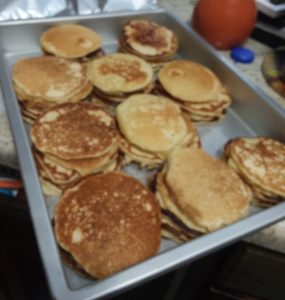 Saturday morning our church planned a Christmas breakfast. That’s right, breakfast. I would have opted to take a breakfast casserole, but my husband has a family tradition of Green Chili Pancakes and it’s so unique that he really wanted to share
Saturday morning our church planned a Christmas breakfast. That’s right, breakfast. I would have opted to take a breakfast casserole, but my husband has a family tradition of Green Chili Pancakes and it’s so unique that he really wanted to share  it. The problem is, he doesn’t know how to make it, I do. His grannie taught me. : ) So I needed to make 50 pancakes and then a huge pot of the green chili sauce. It was too much to do Saturday morning, so it had to be done on Friday. This is very delicious by the way.
it. The problem is, he doesn’t know how to make it, I do. His grannie taught me. : ) So I needed to make 50 pancakes and then a huge pot of the green chili sauce. It was too much to do Saturday morning, so it had to be done on Friday. This is very delicious by the way.  Long story. And I also realized that I needed a formatted document to include with a special framed family genealogy chart we are sending to our children. We are direct descendants of William Brewster of the Mayflower and I wanted to help each family understand who he was, what his family was like, and why they came to America.
Long story. And I also realized that I needed a formatted document to include with a special framed family genealogy chart we are sending to our children. We are direct descendants of William Brewster of the Mayflower and I wanted to help each family understand who he was, what his family was like, and why they came to America. It’s Saturday morning now. The church breakfast is done. The chili pancakes were a success. Everyone loved the pies which have been eaten and I am heading off to do the tent kit and get the rest of the stuff wrapped and shipped. My house is a disaster and the kitchen cabinets can’t even be seen. I haven’t vacuumed, dusted, or cleaned anything. Laundry is piling up but I did get one load in before the breakfast. Another big woohoo!
It’s Saturday morning now. The church breakfast is done. The chili pancakes were a success. Everyone loved the pies which have been eaten and I am heading off to do the tent kit and get the rest of the stuff wrapped and shipped. My house is a disaster and the kitchen cabinets can’t even be seen. I haven’t vacuumed, dusted, or cleaned anything. Laundry is piling up but I did get one load in before the breakfast. Another big woohoo!